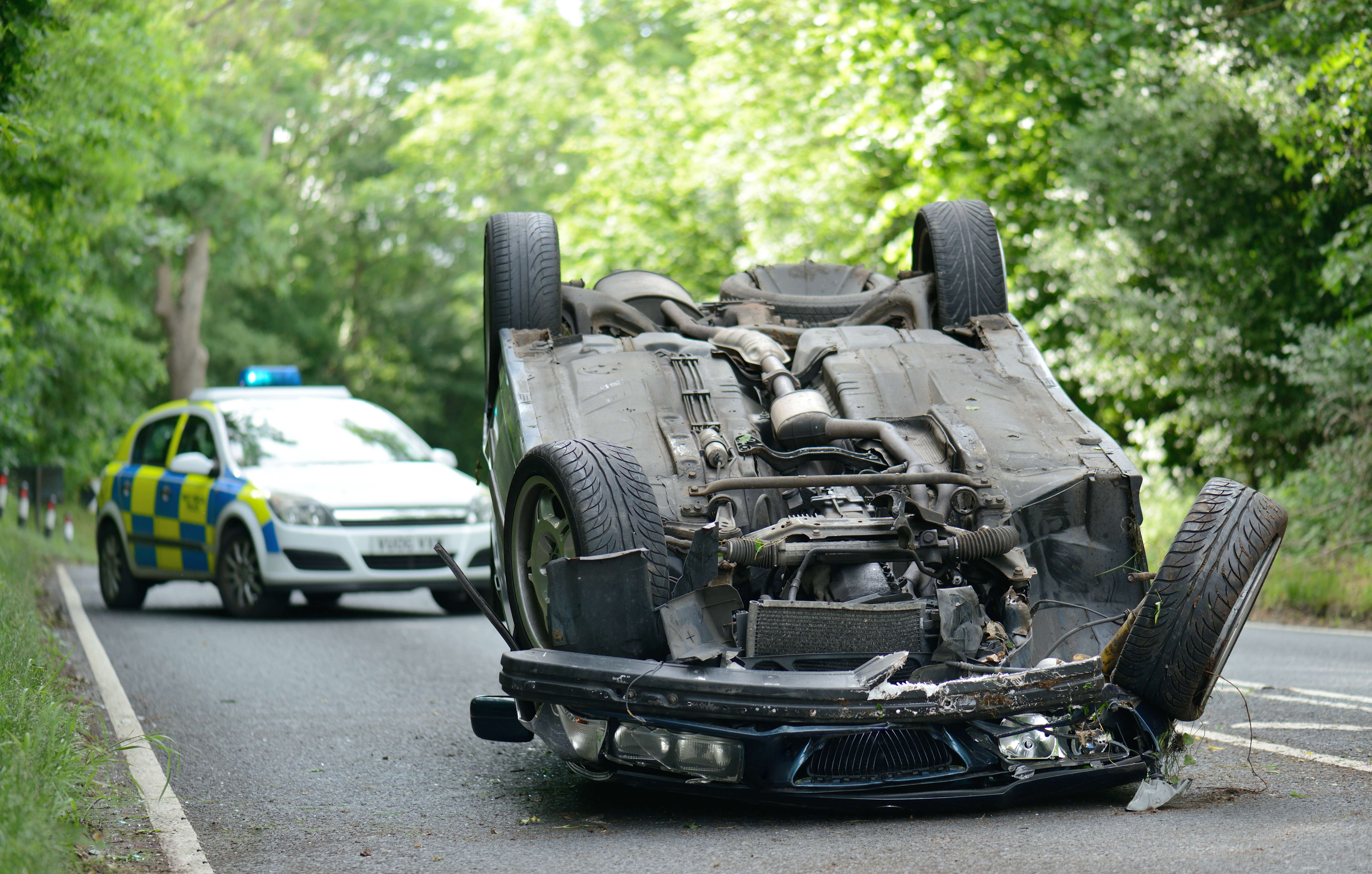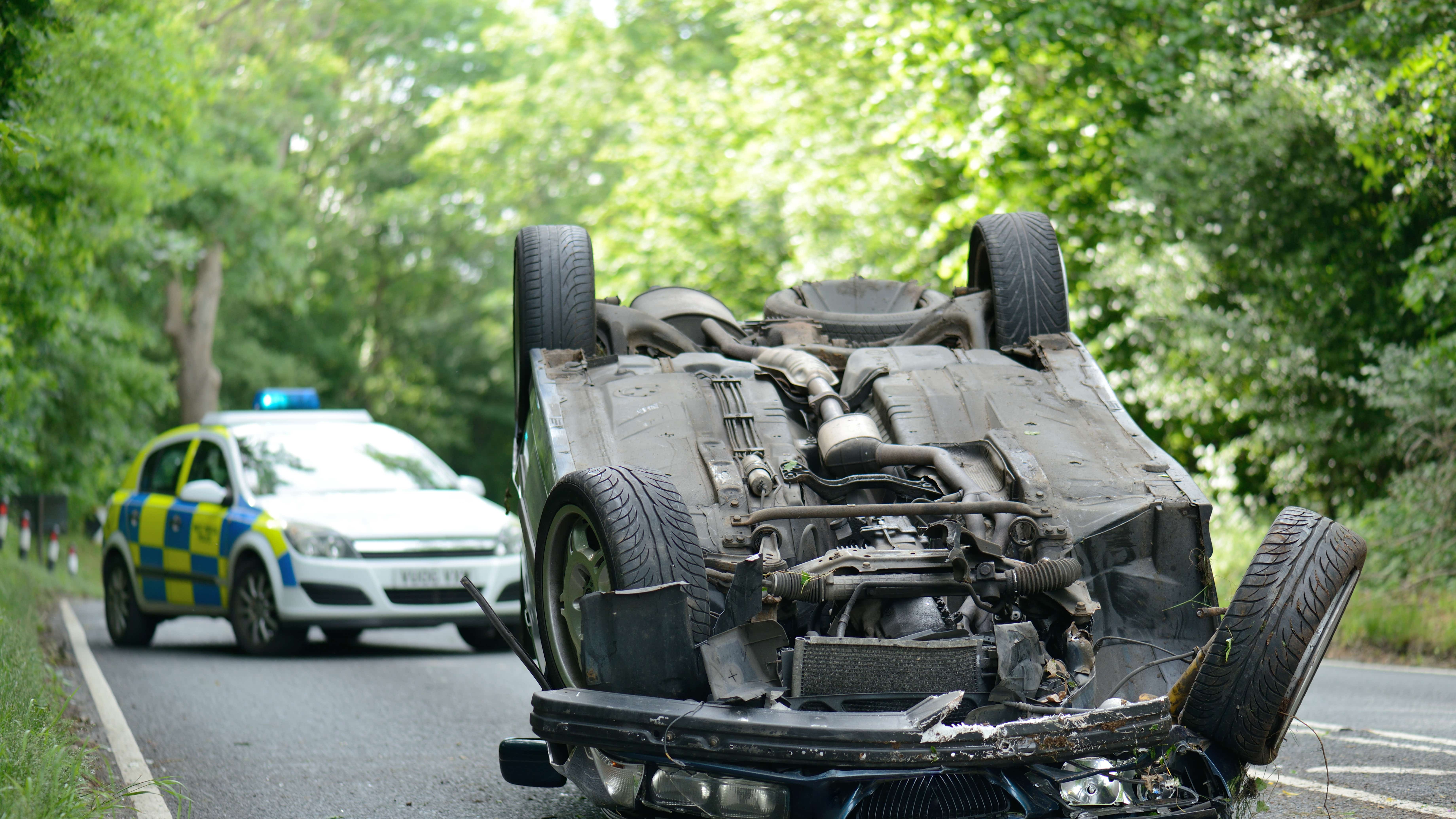- Uswitch.com>
- Car insurance>
- Guides>
- How to make a car insurance claim - Uswitch
What should I do after a car accident?
If you’ve been involved in an accident with another vehicle and need to make a car insurance claim, you should take down the:
Registration number of the other car
Name, address and phone number of the other driver
Car insurance details for the other driver
Names of any witnesses and particularly anybody injured.
If you’re driving a car and get into an accident causing damage to another vehicle or property and/or injury to someone, the law says you should always stop and give your name, address and vehicle registration number to anyone with ‘reasonable grounds for requiring them.’
When you’re driving someone else’s car, you’re also meant to give the name and contact details of the car’s owner.
If anyone is injured, call the emergency services straightaway.
Should I take photos after an accident?
Yes, it’s a good idea to take photos or videos immediately at the scene of an incident, including any damage to other cars.
You could also make a sketch showing where the vehicles were and any other key details, such as where witnesses were standing. Note the weather conditions and the road surfaces as well.
It could all help you remember things better and back up your version of events.
How do I make a car insurance claim?
To help you make a successful claim, follow our car insurance checklist:
Unless you’re certain you were at fault, don’t admit liability at the scene of an accident
Make sure to exchange personal details with the other driver, including your name and address, phone number, car registration number, the make and model of the car and your insurance details
Note the time, date and location of the accident and make a drawing of the accident if possible and include any photos you may have taken at the scene
Complete all details on the claim form and provide extra details if required
Provide the contact details of any witnesses to the accident
Get a crime number from the police if the car insurance claim is as a result of a theft or vandalism, or you believe the accident was unlawful - such as suspected speeding or drunk driving or if the other driver is not insured
Once you’ve contacted your insurer you'll usually be sent a form to complete — try to give your insurer as much information as possible and provide all relevant documents when making a car insurance claim.
What information do I need to make a car insurance claim?
Here’s what your insurer will need to know if the accident involved another car:
The vehicle registration number of the other car
Name and address of the other driver
Phone number of the other driver
Car insurance details of the other driver (and car owner if different)
Names and addresses of other passengers in both cars, including anyone injured
Names and contact details of any witnesses
A police reference number if the police were called
The time and date of the accident, the weather conditions at the time, and how the accident happened.
How long does the car insurance claims process take?
It can take a few days or even months to settle a car insurance claim. How long it takes depends on:
How soon you reported the accident
Whether it’s clear who was at fault
If there’s a dispute over who was to blame.
Insurance car claims can take longer if an accident was serious or complicated, and when there’s a lack of evidence.
What happens if my car is written off?
If your car is written off, then your insurer becomes the owner of the car and you should get a compensation pay-out in return.
The pay-out you get tends to be based on the car’s market value before the accident so you can buy a car of similar make, model and mileage.
Depending on what write-off category your damaged car falls into, you may also have the option of using the compensation pay-out to buy it back from your insurer and get it repaired yourself.
How much will my car insurance go up after I make a claim?
How much your car insurance will go up can vary – it depends on whether or not you were at fault. If the accident wasn’t your fault, the price hike will be much smaller than if you were to blame.
How much more you pay will also depend on other things such as whether you’ve made a claim on your insurance before, the cause and severity of the accident and your overall driving history. That said, you’ll usually be looking at an increase of 20%-50%.
Unless it’s protected, you should also expect to lose any no-claims discount you’ve built up. Even if it’s protected you could still see your premiums rise – this is because a no-claims discount is a reduction from a baseline car insurance premium. Having an accident could increase this baseline charge so even if the discount stays the same, your premiums will go up.
Can I make a car insurance claim if the accident wasn’t my fault?
If you’re involved in an accident that wasn’t your fault and make a car insurance claim, this is known as a ‘non-fault claim.’ It means your insurer will try to recover the cost of any repairs from the other driver’s insurer.
A non-fault claim will still push up the cost of your car insurance but it should be a smaller rise than for a car insurance claim where you were to blame, which is known as an at-fault claim.
Remember, you can also lose some or all of your no claims bonus (NCB) with a non-fault claim unless it was protected at the time of the accident.
Why might my car insurance claim be rejected?
If an insurer rejects your car insurance claim, it has to give a reason.
Typical reasons why an insurer will reject a car insurance claim include:
Failing to disclose key information, including car modifications and your claims history
Driving without a valid licence
Driving a car that’s not roadworthy
Negligent driving, including speeding or driving on drugs or alcohol
Filing your claim too late
Can I dispute a rejected car insurance claim?
Yes, if you want to dispute a rejected claim, you’ll need to:
Write to your insurer, explaining why you think the claim should be accepted
If you’re not satisfied with their response, you should then follow the insurer’s formal complaints process
If things are still unresolved after you’ve been through the insurer’s formal complaints process, you can take it to the Financial Ombudsman Service – your insurer must abide by the ombudsman’s decision.
What if a car insurance claim is made against me?
If another driver makes a car insurance claim against your insurance and you agree the accident was your fault, the process can be straightforward. Once you’ve told your insurer, you won’t have to take any further action.
There’ll be no excess to pay if a third party is claiming against you. But your insurance premiums are likely to rise the following year and you’ll lose any no-claims bonus unless it’s protected.
If you don’t agree the accident was your fault, then your insurer will investigate and look at the evidence. The claim can then be either settled in full by either driver’s insurer or the liability split between each party.
Is it worth making a car insurance claim?
Making a car insurance claim means your insurance premiums will go up and you may lose your no-claims bonus, so you want to be sure your gaining more than you lose.
It might not be worth making a car insurance claim if it’s for very minor damage to your car.
If the excess is higher than the cost of repair, you can’t claim on your car insurance. But you should also think carefully before making a car insurance claim when the cost of repair is only moderately higher than the excess – in this case, you may be better off paying for the damage yourself.




